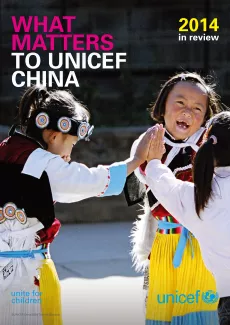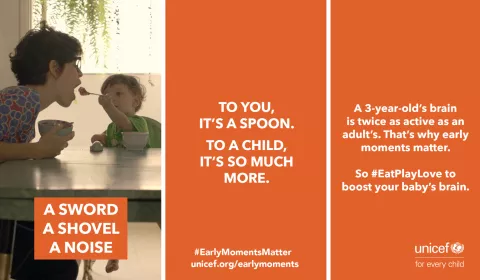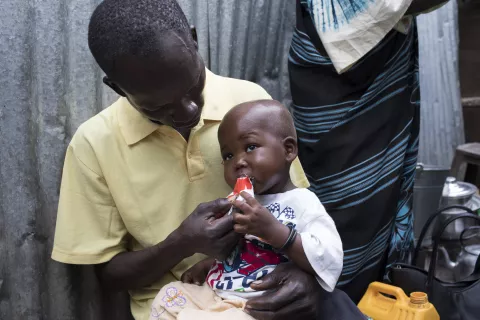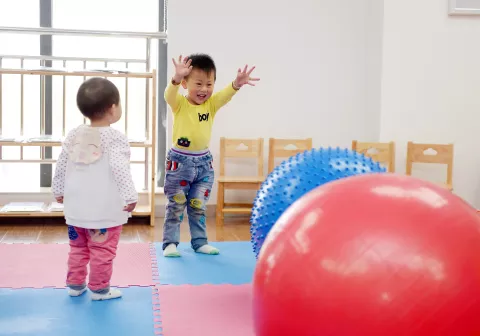What Matters to UNICEF China
2014 in Review
Highlights
What the Government of China wants for the most disadvantaged children
The Government's Twelfth Five-Year Plan (2011–2015) prioritizes universal access to essential public services and recognizes challenges in access for the most disadvantaged girls and boys (such as orphans, children with disabilities and children whose parents migrate without them for urban jobs). At the Third Plenum of the Eighteenth Central Committee (in 2013), leaders called for reforms to improve income distribution and to narrow the gaps in the Government's delivery of public services.
How UNICEF helps translate those ambitions into results for Chinese children
UNICEF provides evidence and global insights on:
• inclusive social policy reform for the poorest and the most disadvantaged children;
• children's survival and growth;
• safe water, sanitation and hygiene in schools, health facilities and communities;
• early childhood development;
• quality education in child-friendly schools;
• protection of children from violence, abuse, neglect and exploitation;
• non-discrimination and support to children affected by HIV or AIDS; and
• disaster risk reduction programming that builds up resilience among children and communities.
The UNICEF programme of cooperation in China is divided into five sections that revolve around improving children's chances of survival and helping them achieve their full growth potential:
• Health, Nutrition, Water, Sanitation and Hygiene
• Education and Child Development
• Child Protection
• Children Affected by HIV and AIDS
• Social Policy and Reform for Children
UNICEF activities aim to benefit the most disadvantaged and hardest-to-reach children and women in China.





